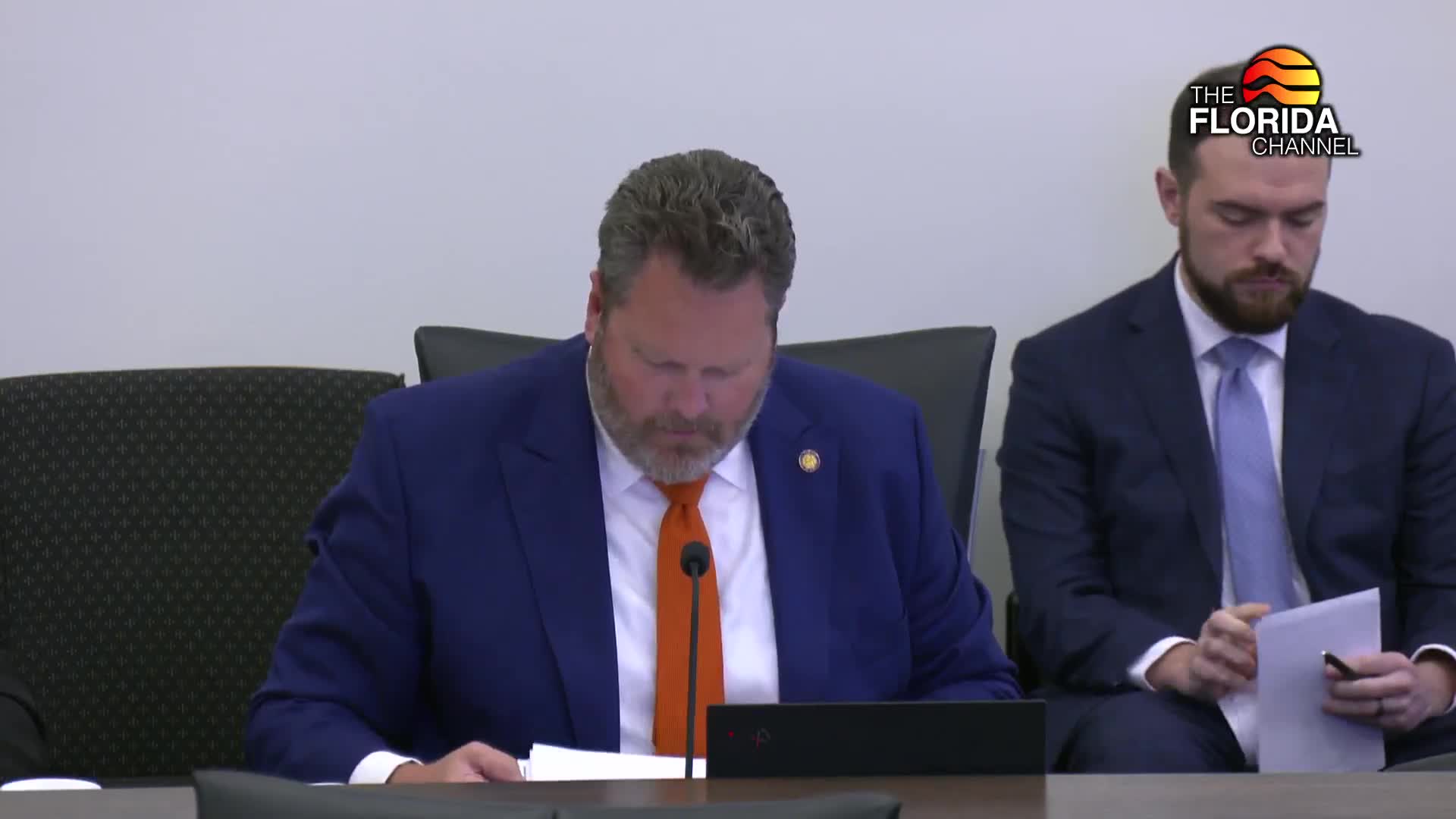Committee advances bill preempting local single‑use packaging rules, creates limits on new incinerator permits near homes and schools
Get AI-powered insights, summaries, and transcripts
Subscribe
Summary
CS/CS/SB 1822 would preempt most local rules on auxiliary containers and prohibits new incinerator permits within certain distances of residential or school areas in home‑rule counties; the measure drew dozens of public comments urging a no vote.
CS/CS/SB 1822 moved out of the Senate Rules Committee after witnesses offered sharply divided views on the bill’s two main components: (1) statewide regulation of “auxiliary containers” (single‑use food and merchandise packaging) rather than a local patchwork of ordinances, and (2) a restriction on the siting of new waste‑to‑energy facilities or incinerators within one mile of schools or 1 dwelling per acre in home‑rule counties.
Sponsor Senator Bart Martin told the committee the bill provides clarity and continuity across jurisdictions so businesses that operate across county lines face consistent rules. He also included language prohibiting the Department of Environmental Protection and local governments from issuing permits for new incinerators in certain dense or sensitive areas in home‑rule counties (per section 125.011).
Opponents — including conservation groups, coastal tourism and ecotourism operators, springs and river advocates, and beach‑cleanup volunteers — urged the committee not to preempt local authority. Dozens of public commenters described local cleanup work and data showing reduced trash where local ordinances were in place; they warned statewide preemption would roll back local bans on items such as polystyrene and reduce the ability of parks and cities to tailor rules to local shorelines, springs and watersheds.
Industry groups including the Florida Chamber, Florida Retail Federation and hospitality associations supported the bill’s uniformity approach. The committee adopted a late amendment that narrows DEP’s role to regulation rather than strict mandatory rulemaking language and preserved a carve‑out allowing state parks to regulate packaging in park settings.
After extensive public testimony spanning municipal leaders, nonprofit stewards and business representatives, the committee reported CS/CS/SB 1822 favorably. The transcript records dozens of public commentators — many urging a no vote — and several local elected officials who asked the Legislature to leave local ordinances intact; advocates argued state action, if any, should strengthen regulations rather than eliminate local options.
